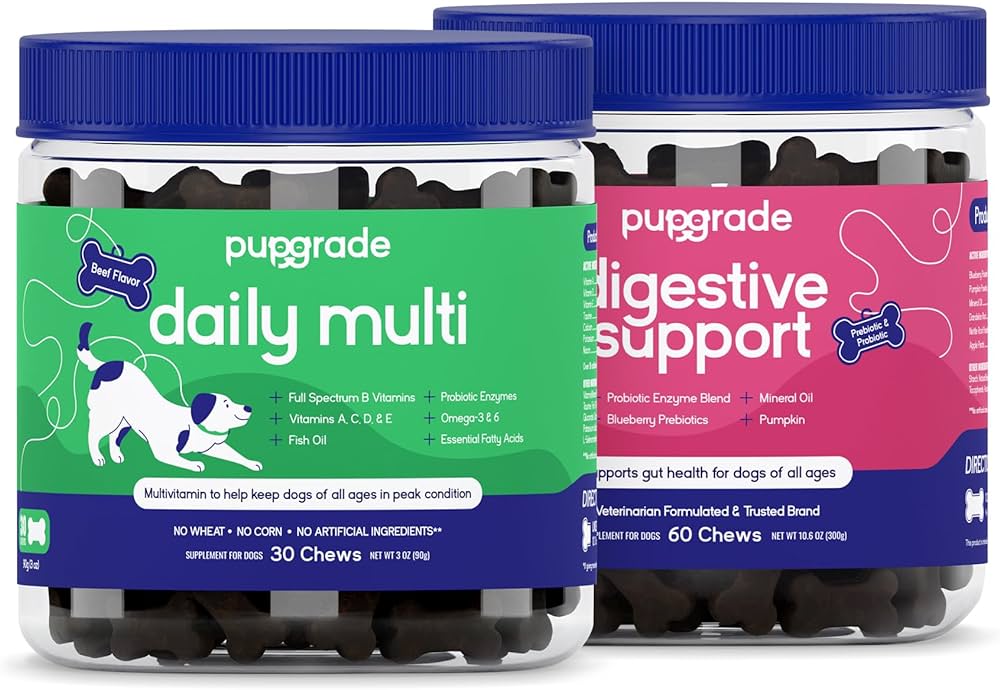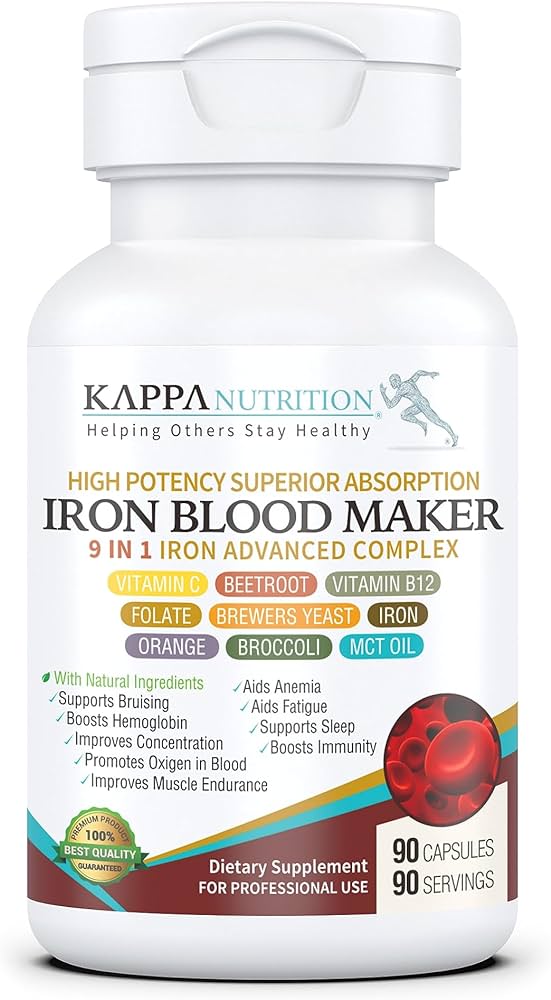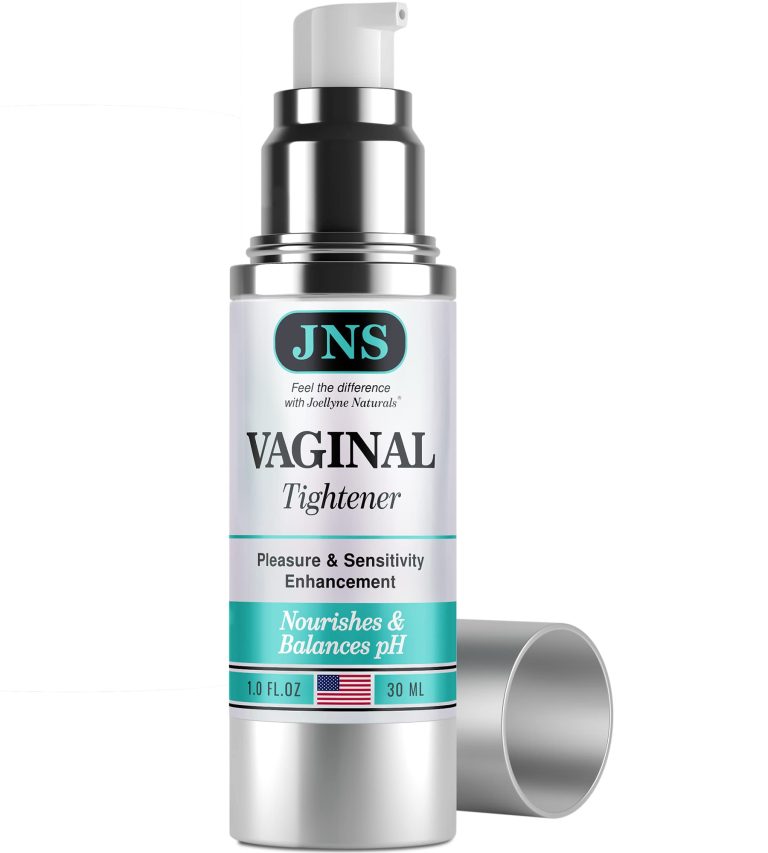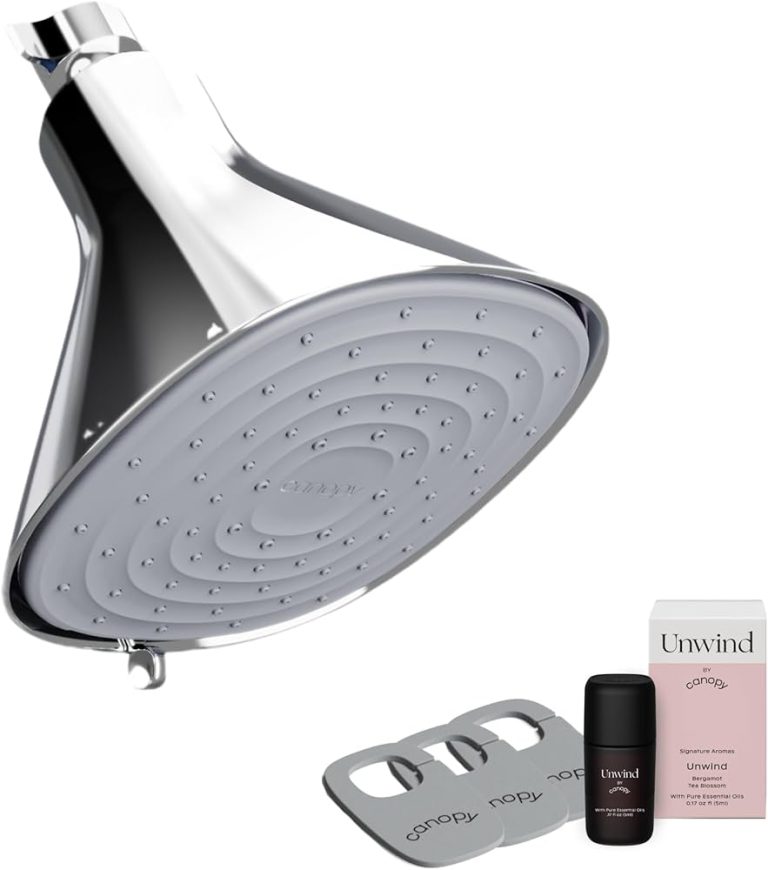9 Best Dog Probiotics for Gut Health and Immunity
Is your furry friend struggling with digestive issues or a weak immune system? Probiotics might be the solution you’ve been searching for. These beneficial bacteria can help improve your dog’s gut health, boost immunity, and even enhance their overall well-being.
In this article, we’ll explore the 9 best dog probiotics available today. Whether you’re looking for something to ease your pup’s tummy troubles or simply want to ensure they stay healthy, we’ve got you covered. Dive in to discover which probiotic could be the game-changer for your canine companion.
Understanding the Benefits of Probiotics
Probiotics offer numerous health benefits for your dog. They can significantly improve gut health and strengthen the immune system.
Enhancing Digestive Health
Probiotics enhance digestive health by balancing the good bacteria in your dog’s gut. When there’s a healthy balance of microorganisms, your pup is less likely to suffer from issues like diarrhea, constipation, and bloating. Probiotics help break down food more efficiently, allowing your dog to absorb nutrients better. Dog owners who use probiotics often notice reduced flatulence and firmer stools. A study in the Journal of Veterinary Internal Medicine shows that probiotics can effectively manage dogs’ inflammatory bowel disease.
Boosting the Immune System
Boost probiotics by introducing beneficial bacteria to your dog’s gut. A strong gut microbiome is directly linked to a robust immune system. When the good bacteria flourish, they help fend off harmful pathogens, reducing the risk of infections. Probiotics also stimulate the production of antibodies and enhance immune responses. According to the American Journal of Veterinary Research, dogs given probiotics recover faster from illnesses and have lower incidences of allergies. You will notice improved overall health and fewer vet visits by incorporating probiotics into your dog’s diet.
Review of Dog Probiotic #1
Key Features
This dog probiotic contains a blend of five strains of beneficial bacteria. It includes prebiotics that support these bacteria, ensuring they thrive. The formula is tailored for dogs of all ages, weighing from small breeds to large ones. Each dose comes in an easy-to-administer powder form, making it convenient to mix into food. The product boasts no artificial additives, flavors, or colors, ensuring a natural approach to your dog’s health.
Pros and Cons
- Includes 5 different bacterial strains, covering a wide spectrum of digestive health needs.
- Provides prebiotics, enhancing the effectiveness of probiotics.
- Suitable for dogs of all breeds and ages, ensuring versatility.
- Powder form ensures easy administration, preventing struggles with tablets or capsules.
- No artificial additives, promoting natural health.
- Requires daily administration, which might be a hassle for some pet owners.
- Powder form may not be preferred by picky eaters.
- Slightly higher price point compared to some alternatives.
Review of Dog Probiotic #2
Dog Probiotic #2 offers a well-rounded approach to maintaining your dog’s digestive health. This product stands out in the crowded market due to its unique formulation and ease of use.
Key Features
- Multiple Strains of Bacteria: Includes a blend of six effective bacterial strains to support gut flora balance.
- Inclusion of Prebiotics: Contains prebiotics to enhance the efficacy of probiotics.
- Versatility: Suitable for dogs of all sizes and ages, making it a versatile choice for multi-dog households.
- Non-GMO and Gluten-Free: Free from genetically modified organisms and gluten, ensuring a high-quality product.
- Powder Form: Available in a powder form, allowing for easy mixing with your dog’s food.
- No Artificial Ingredients: Avoids artificial colors, flavors, and preservatives to promote natural health.
- Pros:
- Enhances digestive health with a robust bacterial blend.
- Easy to administer in powder form.
- Safe and suitable for dogs of various breeds and ages.
- Non-GMO and gluten-free ensure quality.
- Cons:
- Requires consistent daily use for optimal results.
- Slightly higher price point compared to other options.
- Potentially not favored by picky eaters due to its powdered nature.
With a range of benefits and minor drawbacks, Dog Probiotic #2 is a solid choice for maintaining your dog’s digestive health and overall well-being.
Review of Dog Probiotic #3
Dog Probiotic #3 is another top-notch option for maintaining your dog’s digestive health. It’s known for its unique formulation and high efficacy.
Key Features
- Blend of Probiotic Strains: Contains seven effective bacterial strains, including Lactobacillus and Bifidobacterium.
- Prebiotic Fiber: Includes inulin to enhance the growth of beneficial bacteria.
- Chewable Tablets: Comes in tasty, chewable form for easy administration.
- All Dogs: Suitable for dogs of all ages, sizes, and breeds.
- No Artificial Additives: Free from artificial colors, flavors, and preservatives.
- Pros:
- Enhanced Gut Health: Supports digestion and reduces issues like diarrhea and gas.
- Immune Boost: Strengthens the immune system by balancing gut bacteria.
- Easy to Administer: Chewable tablets are convenient and palatable.
- High-Quality Ingredients: Made with non-GMO and gluten-free components.
- Cons:
- Higher Cost: Relatively expensive compared to other options.
- Flavor Sensitivity: Some dogs might not like the flavor.
Review of Dog Probiotic #4
Dog Probiotic #4 stands out for its unique blend of beneficial bacteria strains that target multiple aspects of your dog’s health. It’s designed to support digestive and immune systems effectively.
Key Features
- Multi-strain Formula: Includes a combination of seven different bacterial strains, which ensures a well-rounded approach to gut health.
- Prebiotics: Contains prebiotics that help nourish the beneficial bacteria already present in the gut, enhancing the probiotic’s efficacy.
- Easy Administration: Available in both powder and chewable form, making it simple to give to dogs of any size and breed.
- Natural Ingredients: Uses all-natural, non-GMO ingredients to ensure safety for your pet.
Pros and Cons
-
Pros:
- Enhanced Diversity: The multi-strain formula can address a broad range of digestive issues.
- User-friendly: Powder and chewable options make it convenient for different feeding preferences.
- Natural Makeup: All-natural ingredients minimize the risk of side effects.
- Boosts Immunity: The prebiotics and probiotics work together to enhance your dog’s immune system.
- Cost: May be pricier compared to single-strain probiotics.
- Taste Preferences: Some dogs might not favor the taste of the chewable form.
- Storage Needs: Requires refrigeration to maintain the potency of live bacterial strains.
By understanding these features and weighing the pros and cons, you can better decide if Dog Probiotic #4 is the right choice for your furry friend’s health needs.
Review of Dog Probiotic #5
Key Features
Dog Probiotic #5 provides a blend of seven different bacterial strains designed to improve your dog’s digestive health. Each serving contains five billion CFUs (colony forming units) to ensure your dog receives an effective dose. The product also includes a prebiotic to support probiotic growth and maximize digestive benefits. This probiotic is available in a convenient chewable form, making it easy to administer to even the pickiest of dogs. Additionally, Dog Probiotic #5 is free from artificial additives and preservatives, ensuring it is safe for your dog’s daily use.
Pros and Cons
- Multi-strain formula boosts digestive diversity and efficacy.
- High CFU count ensures potent doses for better gut health.
- Prebiotic inclusion supports probiotics and enhances benefits.
- Chewable form simplifies administration, appealing to most dogs.
- No artificial additives contributes to a safer daily supplement.
- Potentially higher cost compared to single-strain options.
- Taste preferences may vary, making it less appealing to some dogs.
- Limited availability in some regions could require online purchasing.
Review of Dog Probiotic #6
Dog Probiotic #6 has garnered attention for its well-rounded formula targeting overall canine health. Let’s delve into its features and evaluate its pros and cons.
Key Features
- Multi-Strain Formula: Contains 10 diverse bacterial strains for comprehensive gut health.
- High CFU Count: Offers six billion CFUs per serving to ensure potency.
- Added Enzymes: Includes digestive enzymes to support nutrient absorption.
- Prebiotic Support: Features inulin to nourish beneficial bacteria.
- Hypoallergenic: Formulated without common allergens like gluten and dairy.
- Easy Administration: Available in powder form, can be mixed with food.
- Pros:
- Comprehensive Support: Multi-strain formula targets various digestive issues.
- High Potency: Six billion CFUs ensure effective colonization in the gut.
- Enhanced Digestion: Added enzymes help break down food efficiently.
- Hypoallergenic: Safe for dogs with food sensitivities.
- Versatile Use: Powder form allows for easy mixing with meals.
- Cons:
- Flavor Concerns: Some dogs may dislike the taste when mixed with food.
- Pricey Option: Higher cost compared to other probiotics.
- Measuring Required: Powder form necessitates accurate measurement for each serving.
Dog Probiotic #6 stands out for its diverse strains and added enzymes, offering a well-rounded approach to digestive and overall health. Consider its pros and cons to determine if it meets your dog’s health needs.
Review of Dog Probiotic #7
Dog Probiotic #7 stands out for its unique formulation and user-friendly features.
Key Features
- Multi-Strain Formula: Combines several strains of beneficial bacteria, targeting overall gut health and immunity.
- High CFU Count: Offers 5 billion CFUs per serving, ensuring potency and efficacy.
- Tasty Chewable Tablet: Palatable tablets make it easy to administer without mixing powders or dealing with mess.
- Prebiotic Fiber: Contains inulin and other prebiotics to support bacterial growth and digestive health.
- Veterinarian-Approved: Developed and endorsed by veterinarians, ensuring safety and quality.
Pros and Cons
Pros:
- Easy Administration: Chewable tablets eliminate the need for mixing or measuring.
- Palatable Flavor: Dogs enjoy the taste, making it simpler to give consistently.
- Clinically Tested: Backed by research ensuring effective results.
- Broad Spectrum Support: Addresses both digestive health and immunity comprehensively.
- Convenient Packaging: Packaged in a resealable, travel-friendly container.
- Higher Price Point: More expensive compared to other probiotic options.
- Limited Availability: Sometimes out of stock, making consistent purchasing a challenge.
- Flavor Sensitivity: While most dogs enjoy the taste, a few may be picky.
Dog Probiotic #7 offers robust support for your dog’s digestive and immune health, owing to its thoughtful formula and user-friendly features.
Review of Dog Probiotic #8
Dog Probiotic #8 stands out in the crowded market of canine supplements. Let’s take a closer look at its key highlights and drawbacks.
Key Features
High CFU Count: Boasts over 5 billion CFUs per serving, ensuring potent support for your dog’s gut health.
Multiple Strain Formula: Includes a blend of 7 diverse probiotic strains, each targeting different aspects of digestive health.
Prebiotics Included: Contains prebiotic fibers to nourish probiotics and promote a healthy microbiome.
Chewable Tablets: Offers an easy-to-administer form, making it simple to incorporate into your dog’s daily routine.
Veterinarian Recommended: Formulated and endorsed by vets, adding a layer of trust for pet owners.
Pros and Cons
Pros:
- Effective Dosage: High CFU count helps restore and maintain gut flora balance.
- Optimal Blend: Multiple strains address various digestive issues.
- Convenient Administration: Chewable tablets are easy to give and widely accepted by dogs.
- Added Prebiotics: Enhances the efficacy of probiotics by supporting beneficial bacteria.
Cons:
- Pricey: Higher cost compared to some competitors.
- Taste Sensitivity: Some dogs may be picky about the taste.
- Limited Availability: Occasionally out of stock due to high demand.
Dog Probiotic #8 is a robust option for providing comprehensive digestive support but comes with a few considerations.
Review of Dog Probiobic #9
Dog Probiotic #9 is an exceptional choice for maintaining your dog’s gut health. It boasts several impressive features designed to enhance your pet’s overall well-being.
Key Features
- High CFU Count: Contains 10 billion CFUs (Colony Forming Units) per serving, ensuring a potent dose for effective gut support.
- Multi-Strain Formula: Includes seven different probiotic strains such as Lactobacillus acidophilus and Bifidobacterium animalis that target various digestive issues.
- Prebiotics Inclusion: Enriched with prebiotics to nourish the beneficial bacteria and help them thrive.
- Flavor Options: Available in chicken and beef flavors, making it easier for picky eaters to enjoy.
- Form and Administration: Comes in easy-to-administer powder form that can be mixed with food.
Pros and Cons
-
Pros
- High Potency: Each serving provides a high concentration of probiotics for maximum effectiveness.
- Holistic Formula: The inclusion of multiple strains and prebiotics addresses a broad range of digestive needs.
- Palatability: Flavor options increase the likelihood your dog will readily consume the supplement.
- Ease of Use: Powder form allows easy mixing with any type of food, ensuring no disruption to feeding routines.
- Cost: Slightly pricier compared to other probiotics in the market.
- Storage Requirements: Needs refrigeration to maintain potency, which may be inconvenient for some users.
- Sensitive Stomach Reactions: Some dogs may experience mild stomach upset when first introduced.
How to Properly Use Dog Probiotics
Giving your dog probiotics correctly ensures they get the maximum benefit. Here’s what you need to know about administering and dosing probiotics.
When to Administer
Administering probiotics at the right time helps maximize their efficacy. You should give probiotics during or after a meal to ensure better absorption. For dogs undergoing antibiotic treatment, wait two hours post-medication to avoid interference. You can also provide probiotics during times of stress, dietary changes, or gastrointestinal upset to support your dog’s digestive health efficiently.
Common Dosages
Dosages can vary based on your dog’s weight and the particular probiotic product you’re using. Always start with the recommended dose on the product label. Typically, smaller dogs may need 1 to 2 billion CFUs daily, while larger dogs might require up to 5 billion CFUs. Consult your vet for precise dosages tailored to your dog’s specific needs and health conditions.
Conclusion
Choosing the right probiotic for your dog can make a significant difference in their digestive and immune health. Each product offers unique benefits and potential drawbacks, so it’s crucial to consider your dog’s specific needs and preferences. Whether you’re dealing with digestive issues or looking to boost overall well-being, the right probiotic can provide the support your furry friend needs.
Always consult your vet before starting any new supplement to ensure it’s the best fit for your dog. With the right probiotic, you’ll be well on your way to promoting a happier, healthier life for your canine companion.
Frequently Asked Questions
What are the benefits of dog probiotics?
Dog probiotics help improve gut health, boost the immune system, reduce gastrointestinal issues, and restore the natural balance of gut flora.
Which dog probiotic is the most effective?
Dog Probiotic #8 is highly effective due to its high CFU count, multi-strain formula, and veterinarian endorsements.
Are there any drawbacks to using dog probiotics?
Some dog probiotics can be expensive, cause taste sensitivity or mild stomach upset in dogs, and may require refrigeration.
Can I give my dog probiotics during antibiotic treatment?
It’s best to wait until after antibiotic treatment to administer probiotics for better effectiveness, ensuring proper gut flora restoration.
How should I administer dog probiotics?
Adminsiter probiotics during or after meals for optimal absorption. Also, consider giving them during times of stress or dietary changes.
What is the recommended dosage for dog probiotics?
Dosage depends on the dog’s weight and the specific probiotic product. Consult your vet to determine the appropriate dosage for your dog.
What is the palatability of Dog Probiotic #9?
Dog Probiotic #9 is available in chicken and beef flavors, making it suitable for picky eaters.
Are there any potential side effects of dog probiotics?
Some dogs may experience mild stomach upset initially. Start with a lower dose and consult your vet if issues persist.






